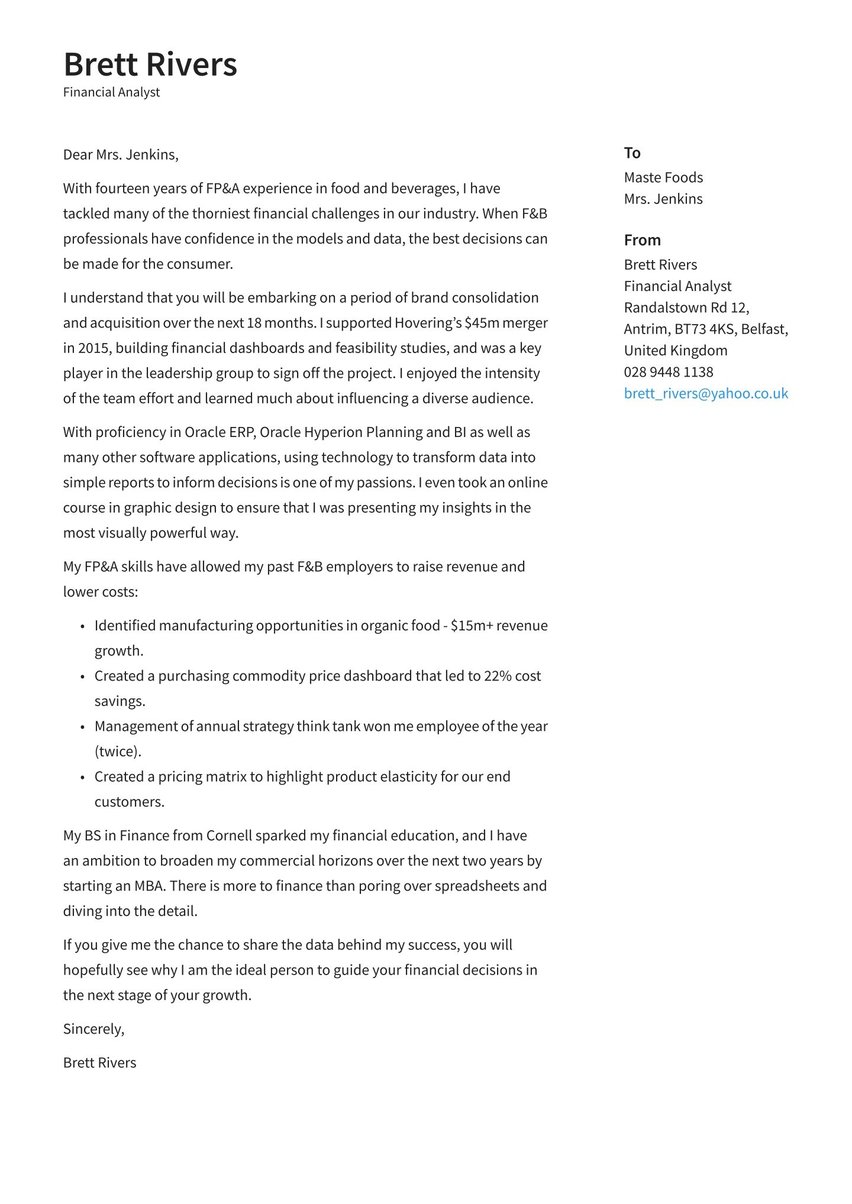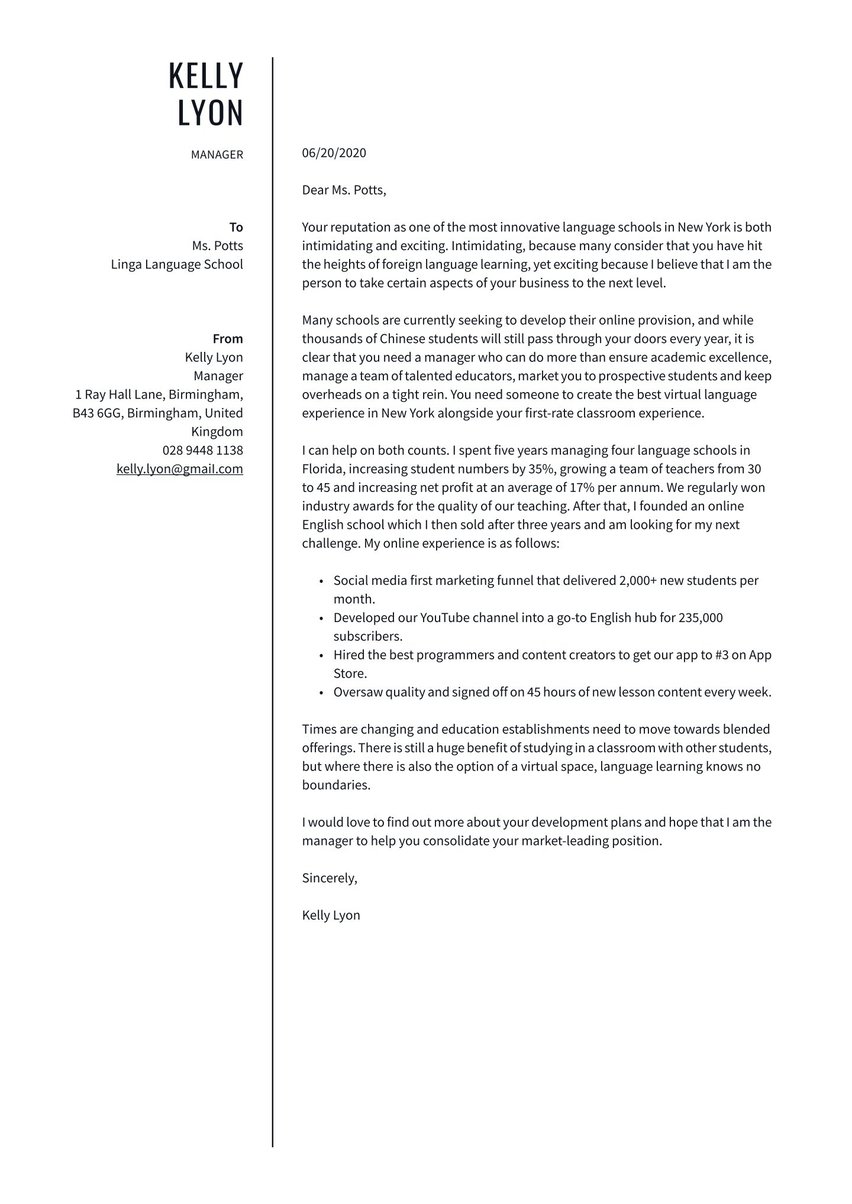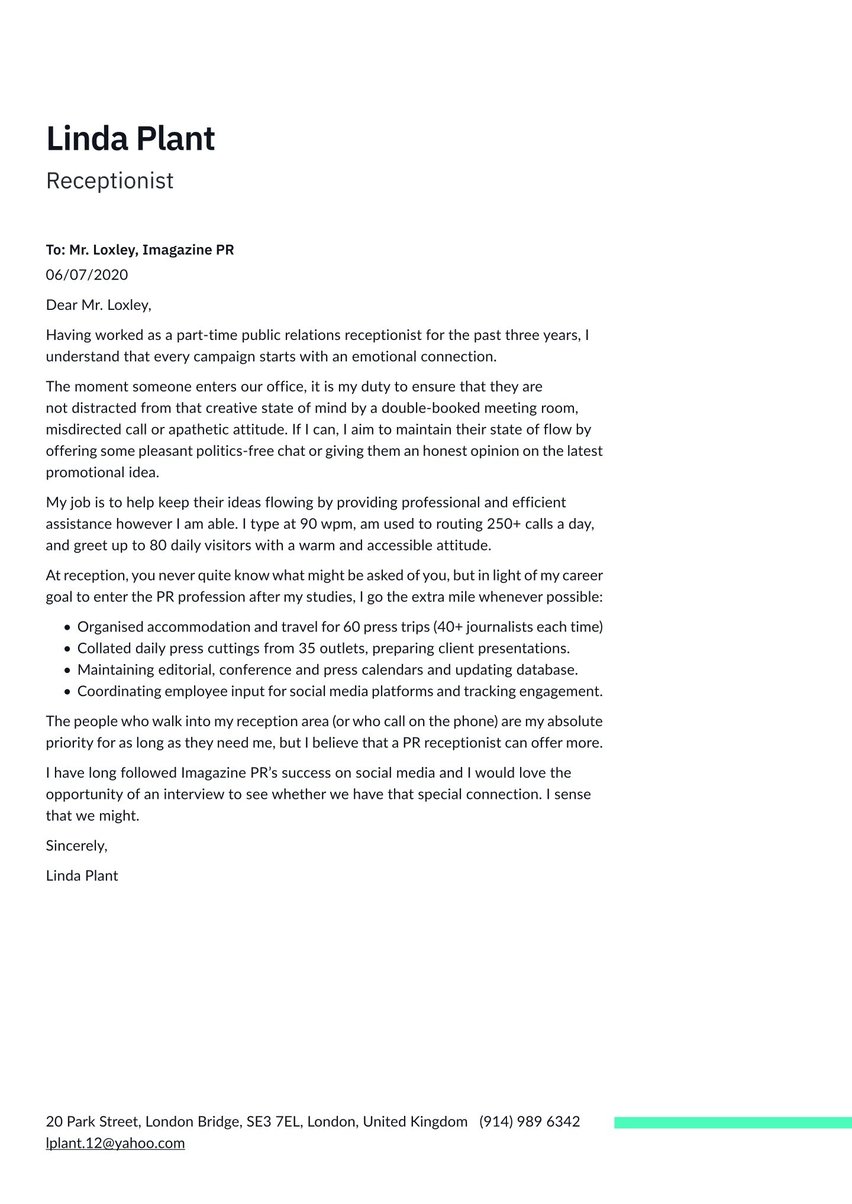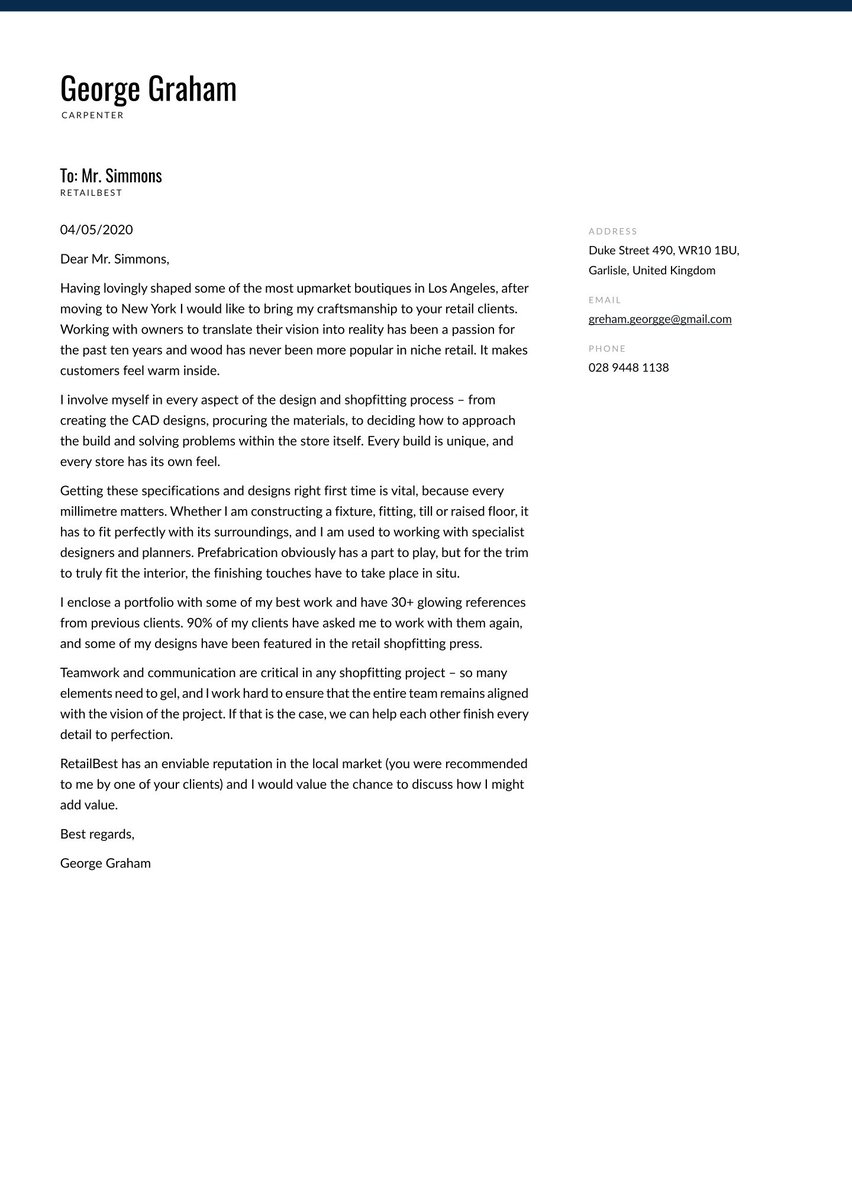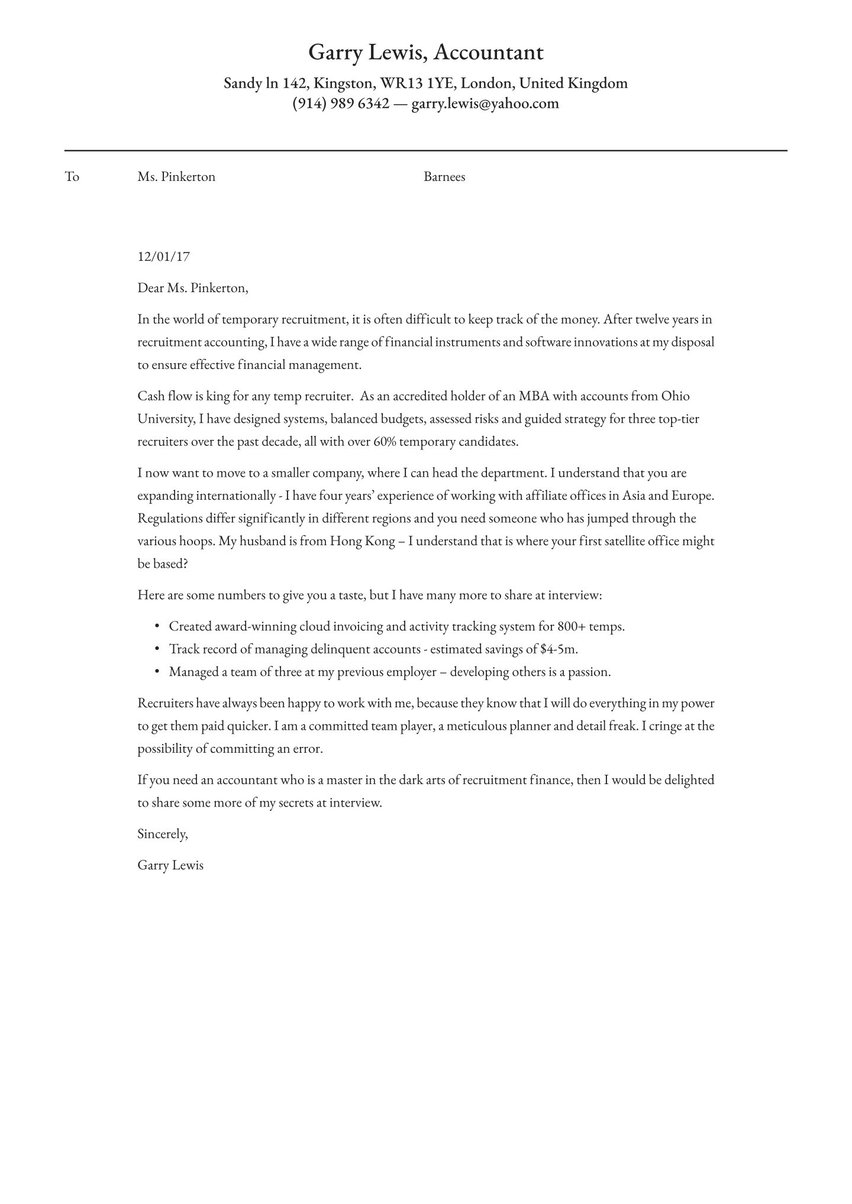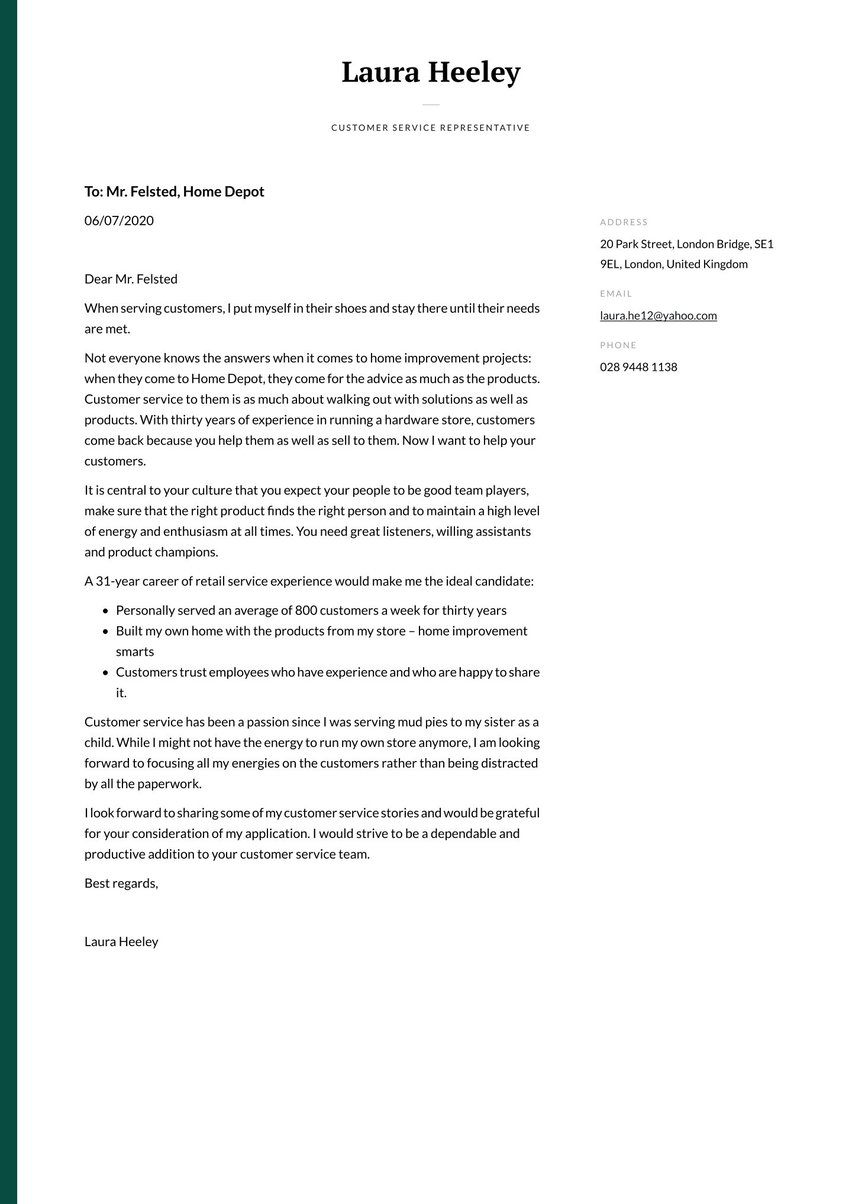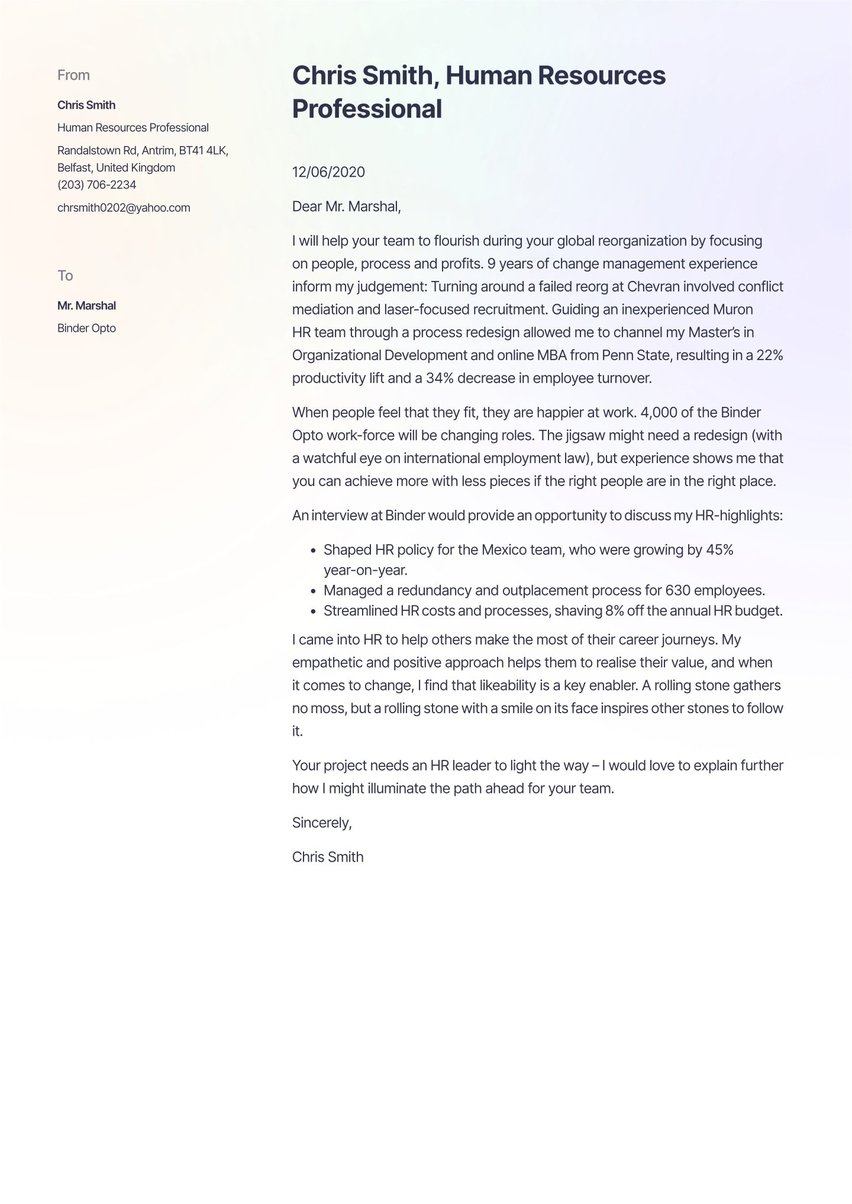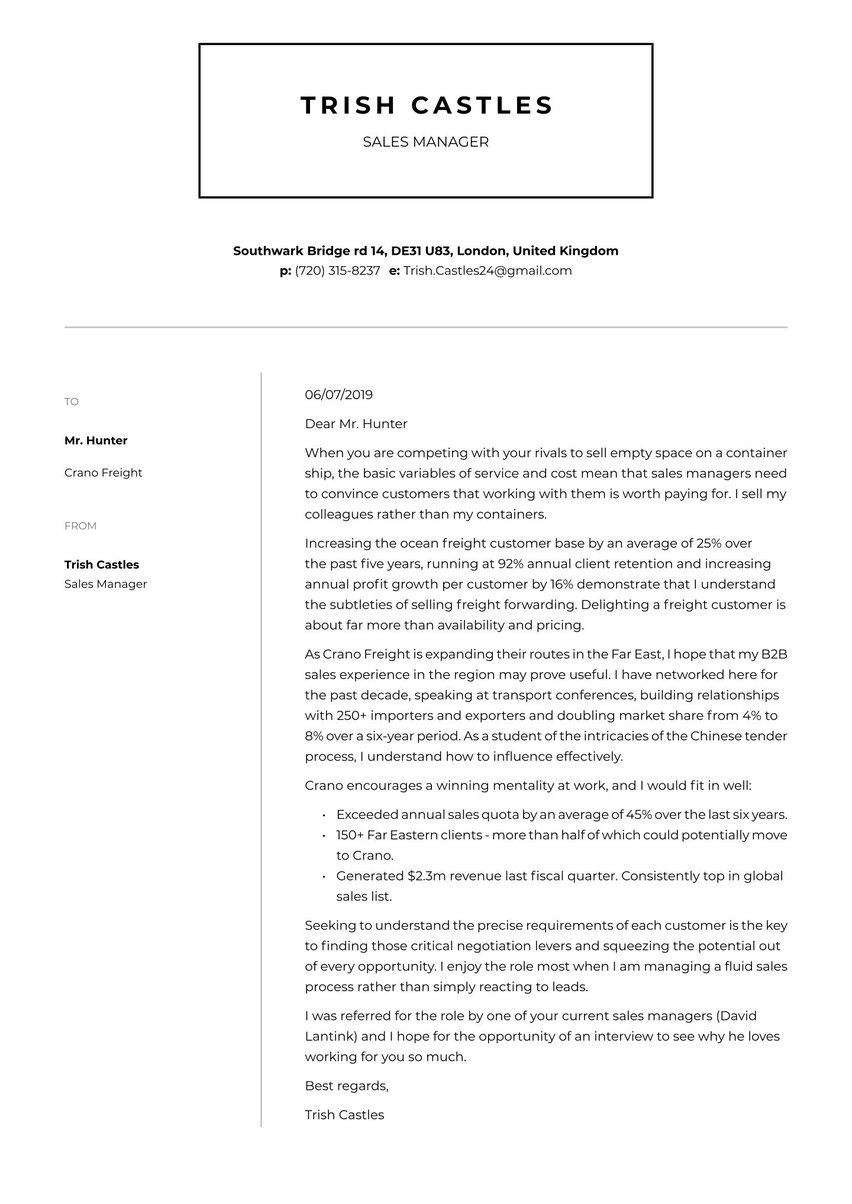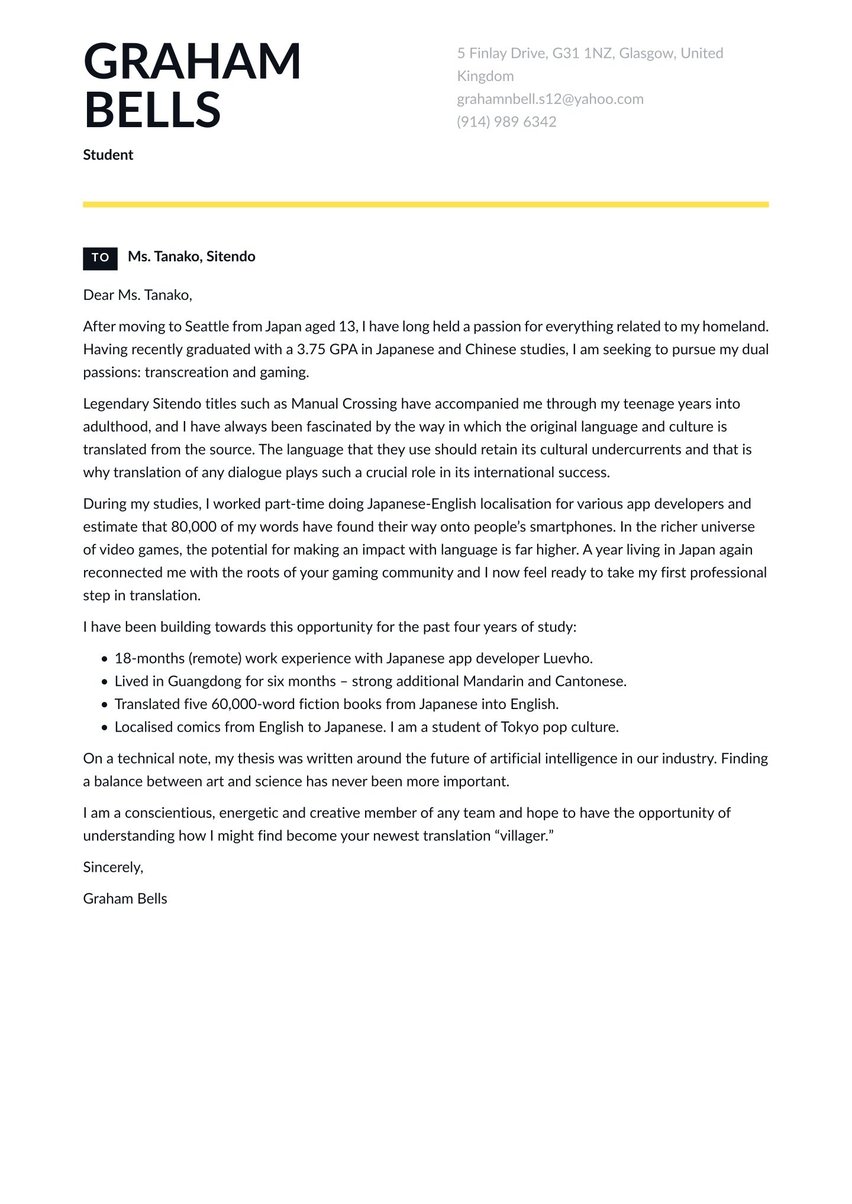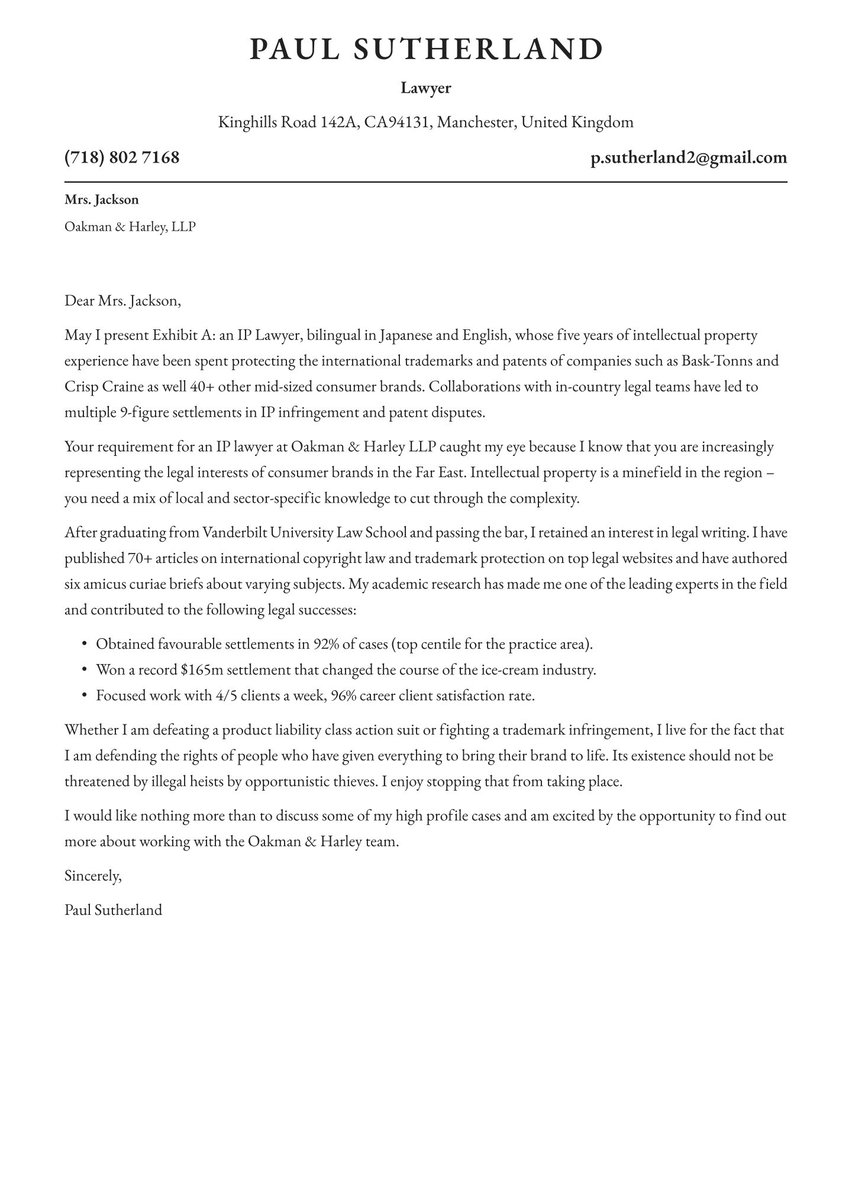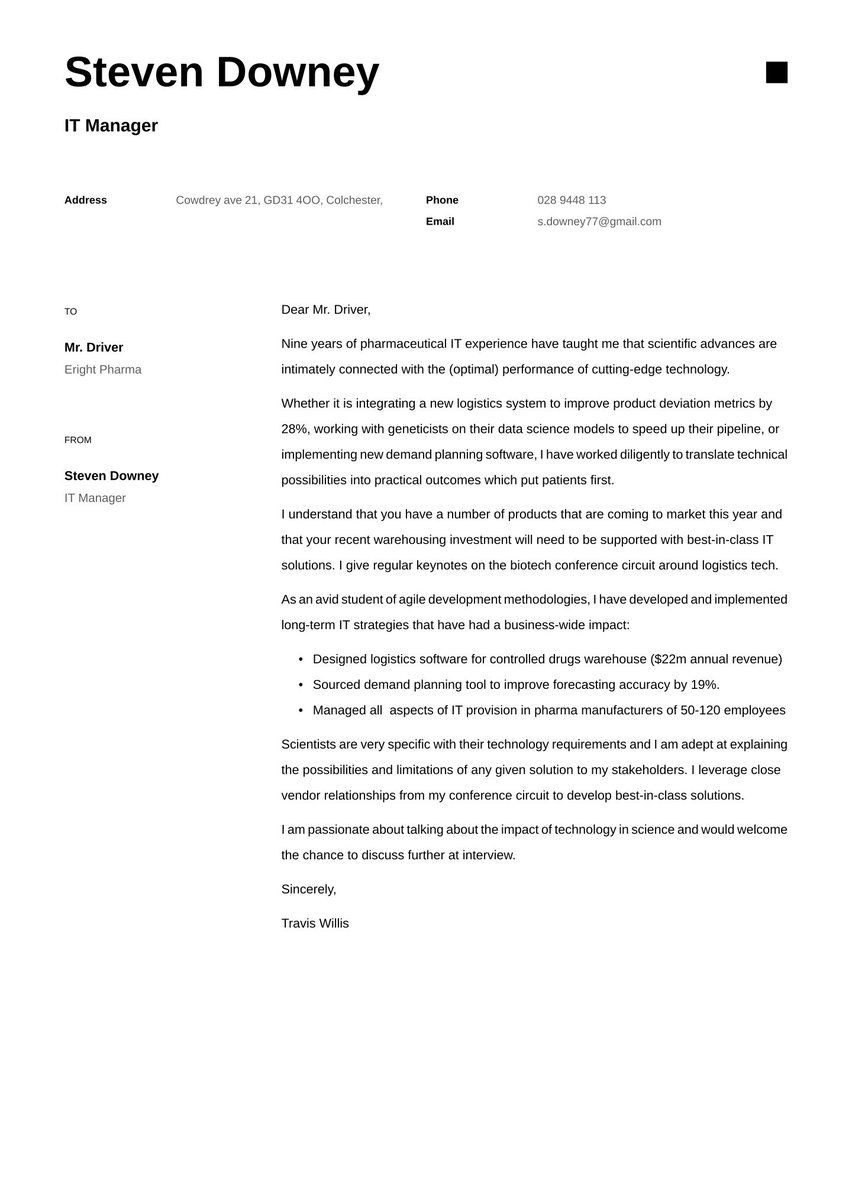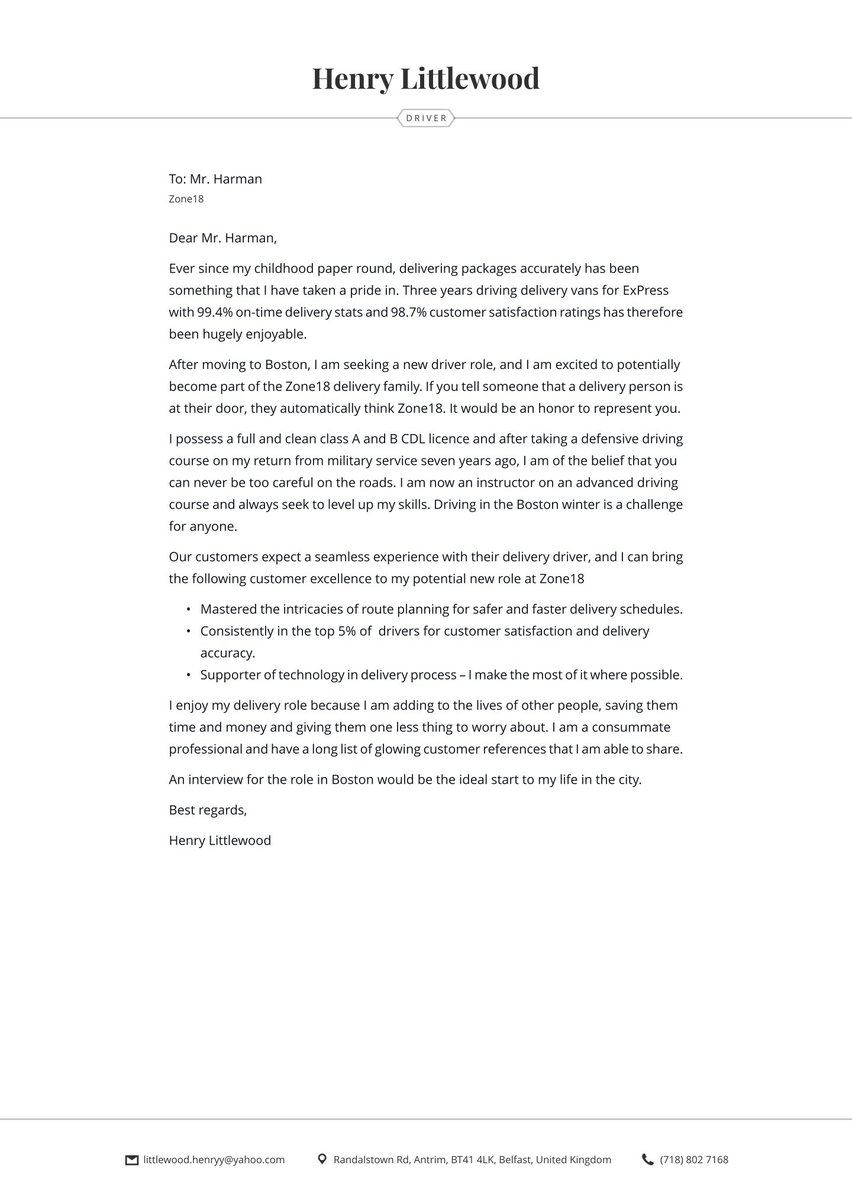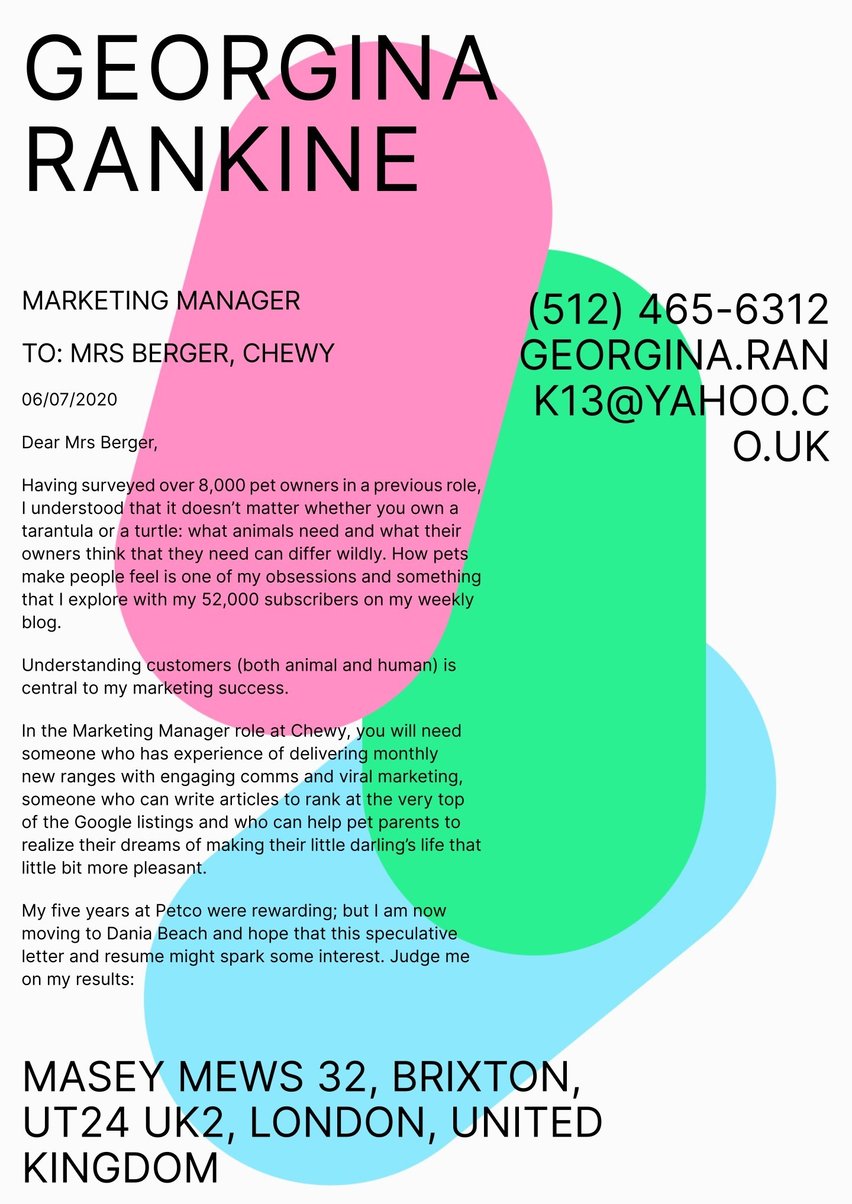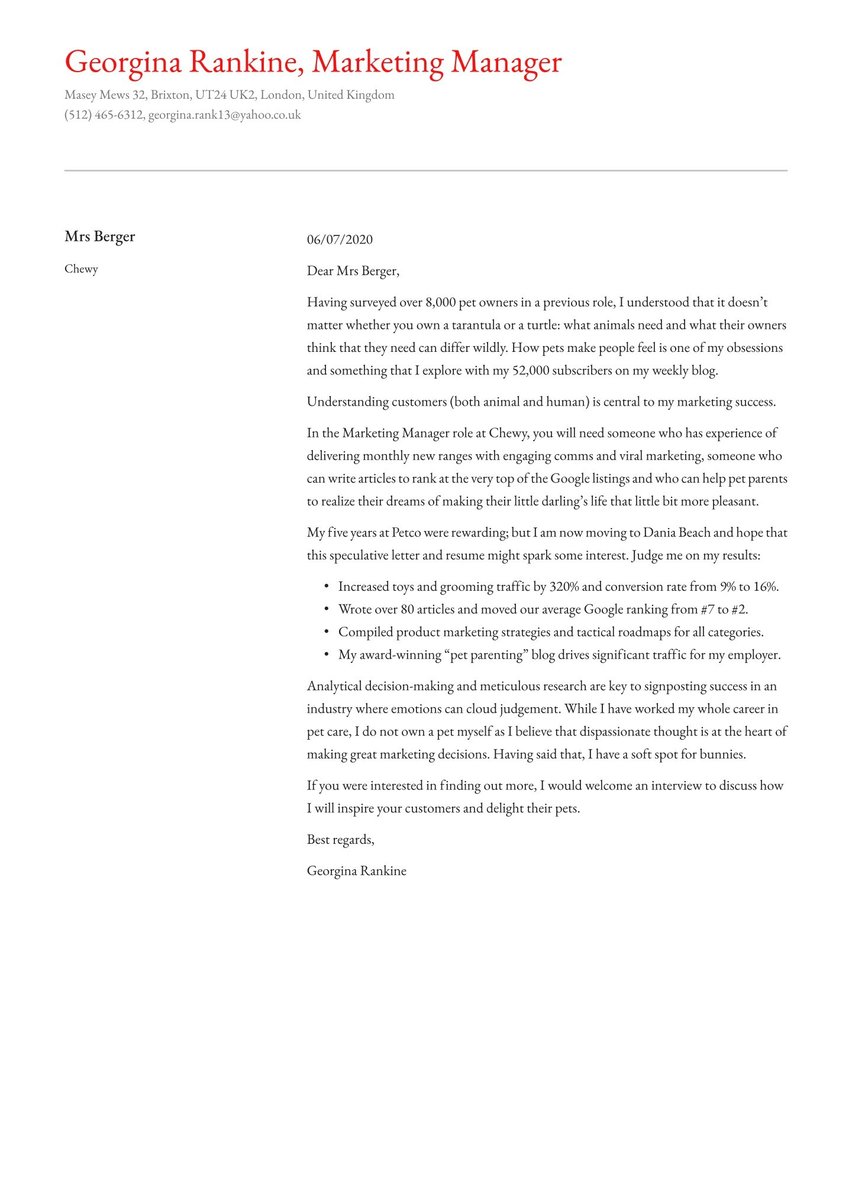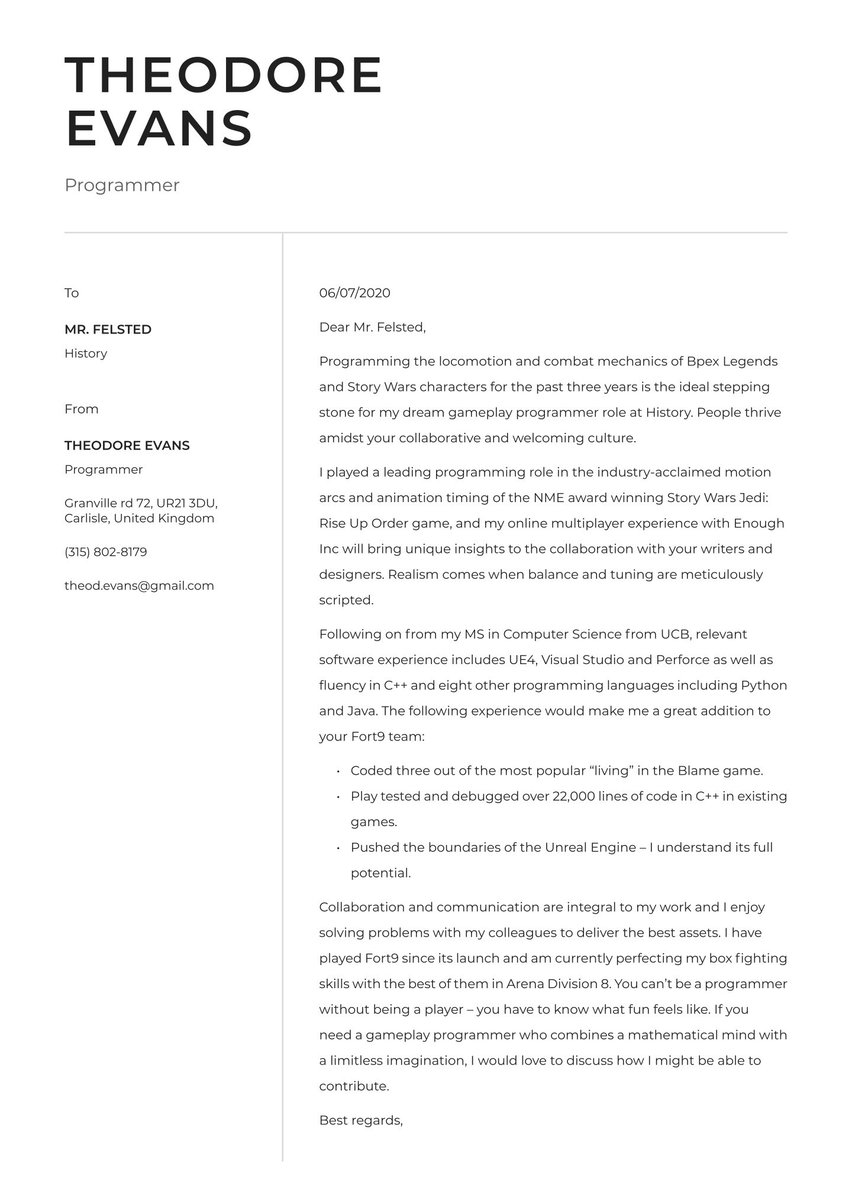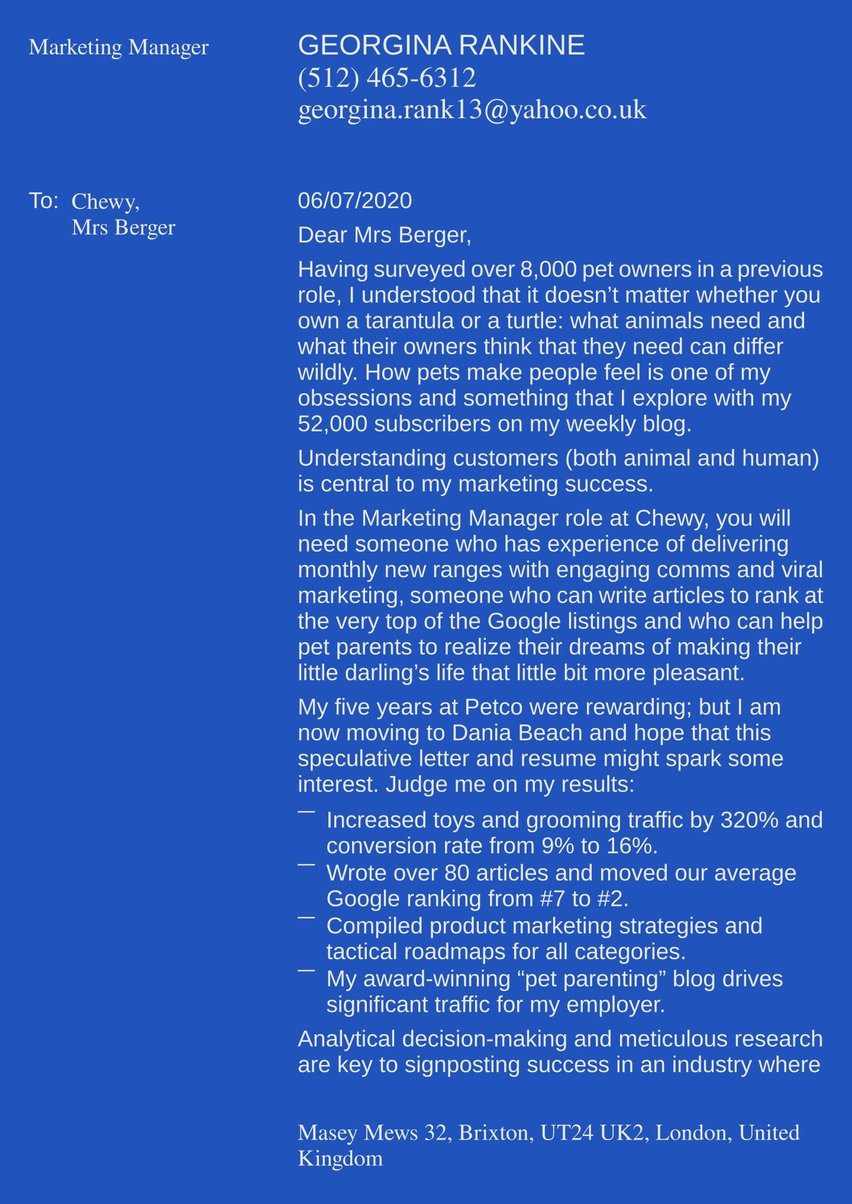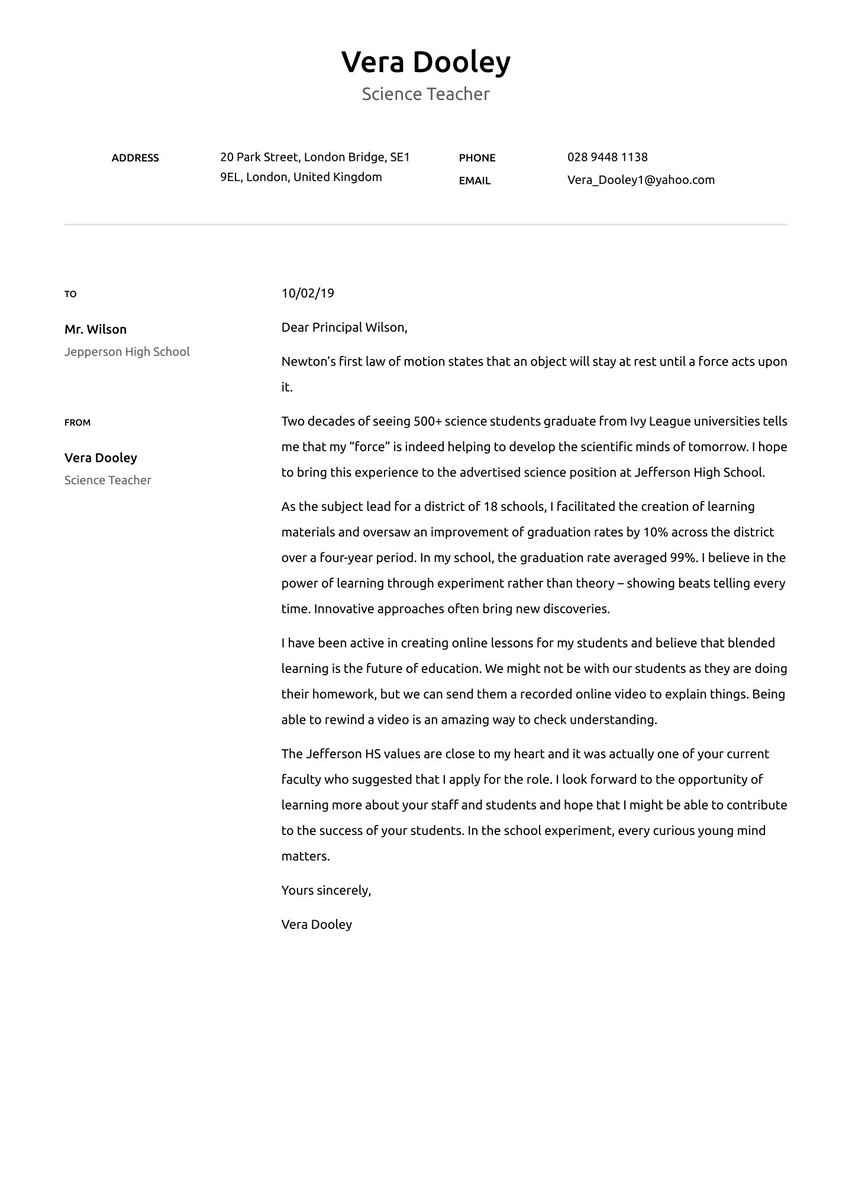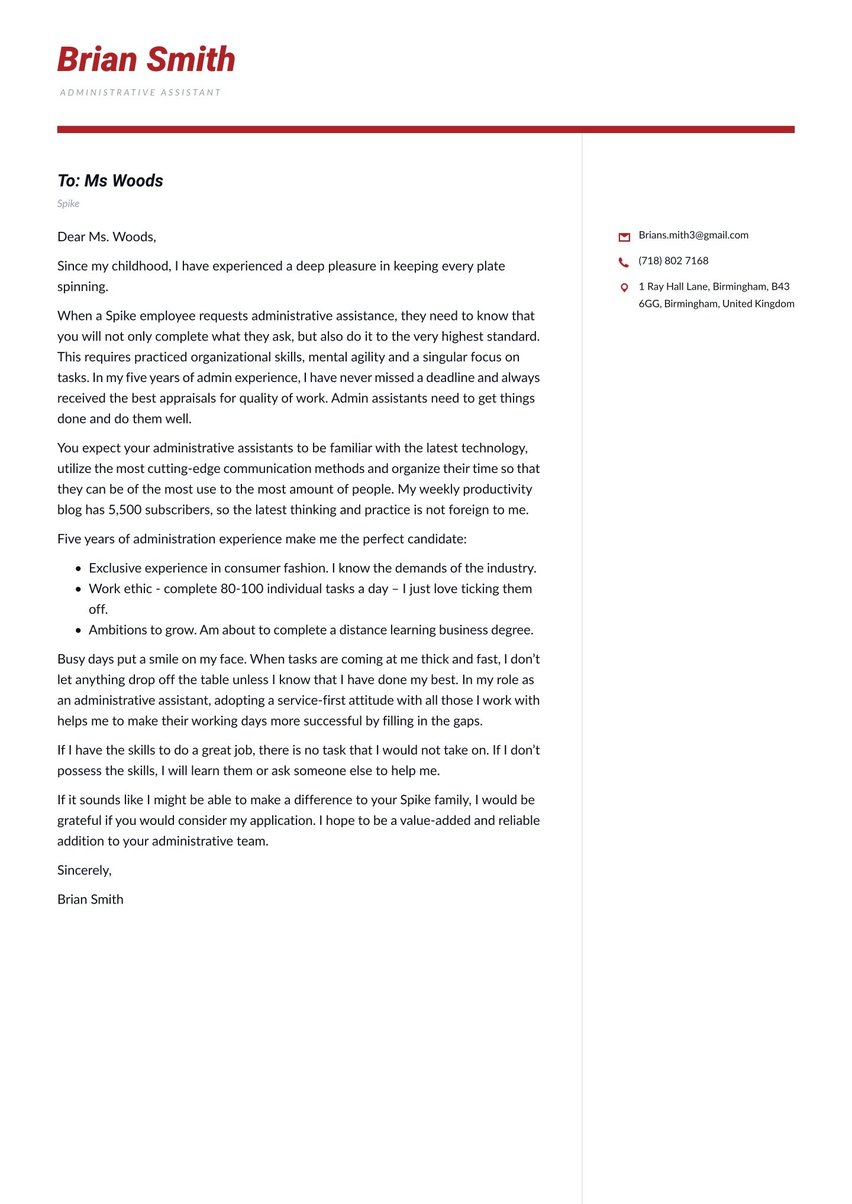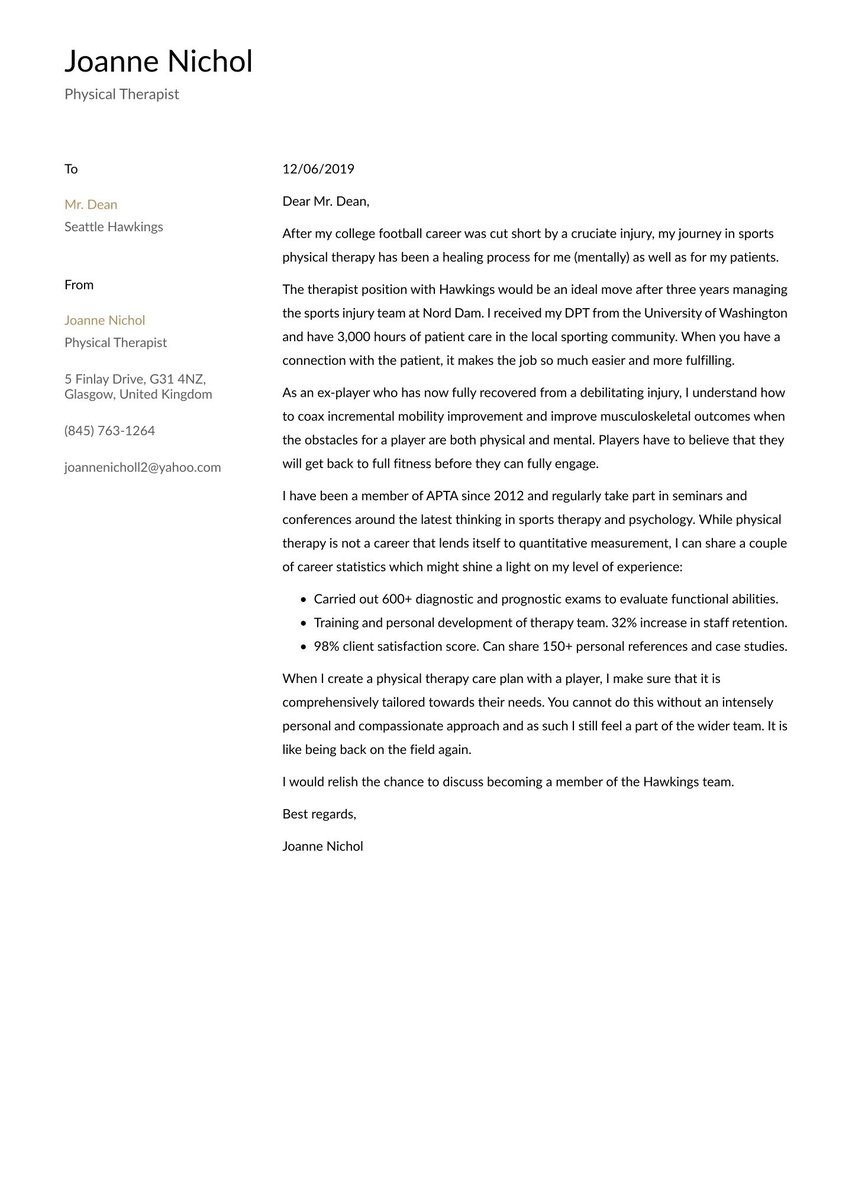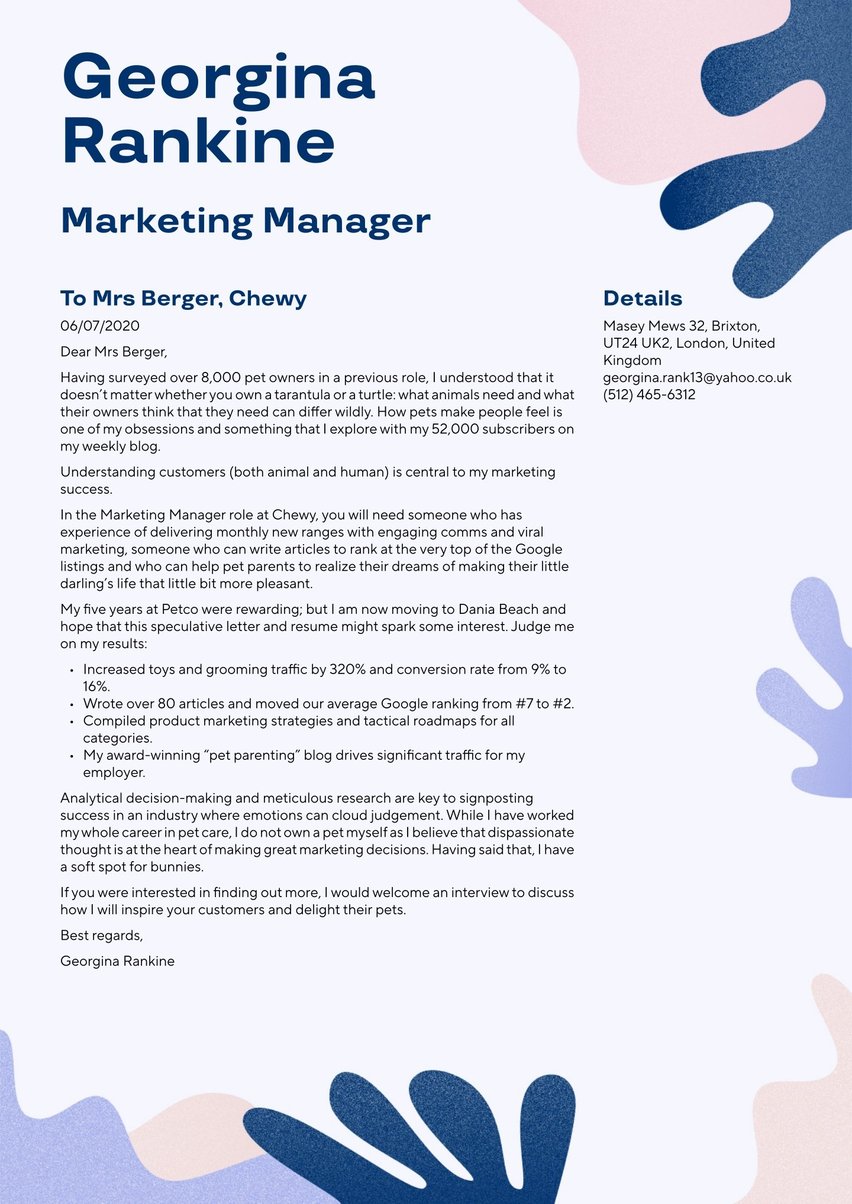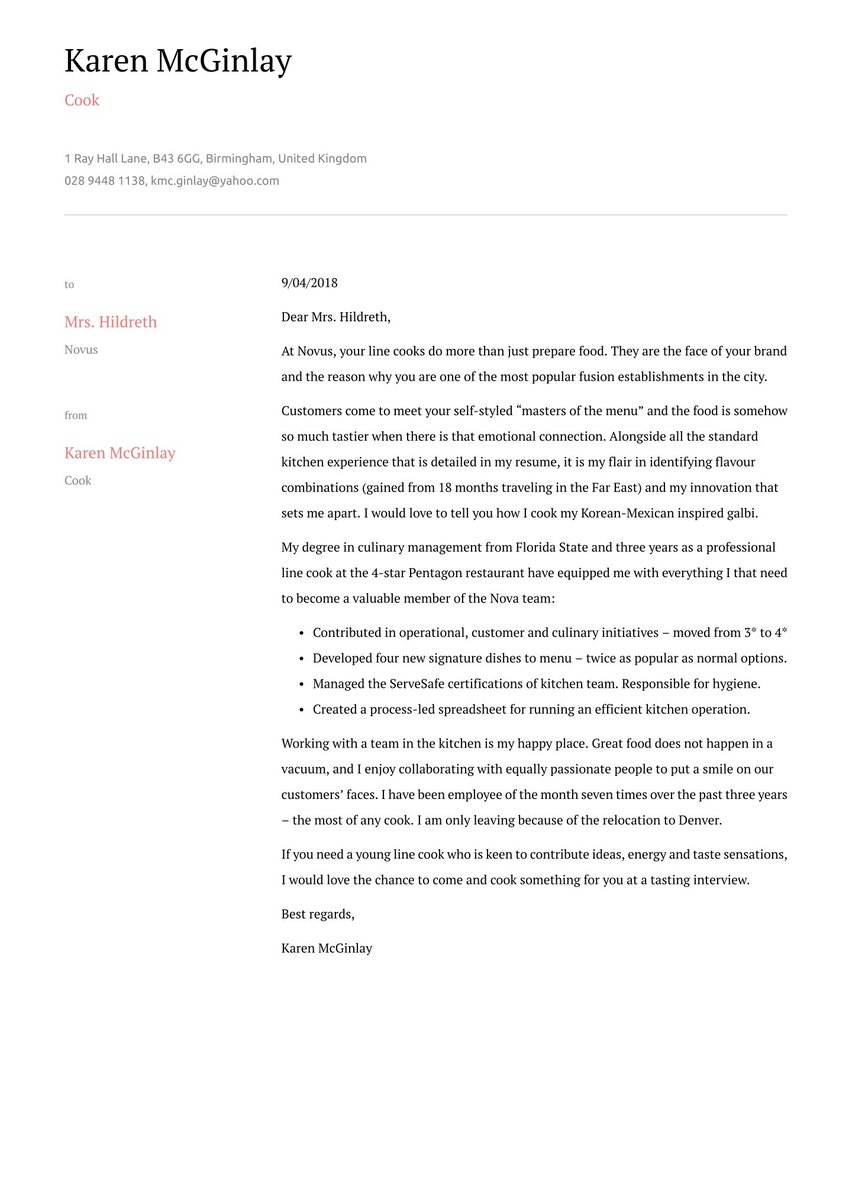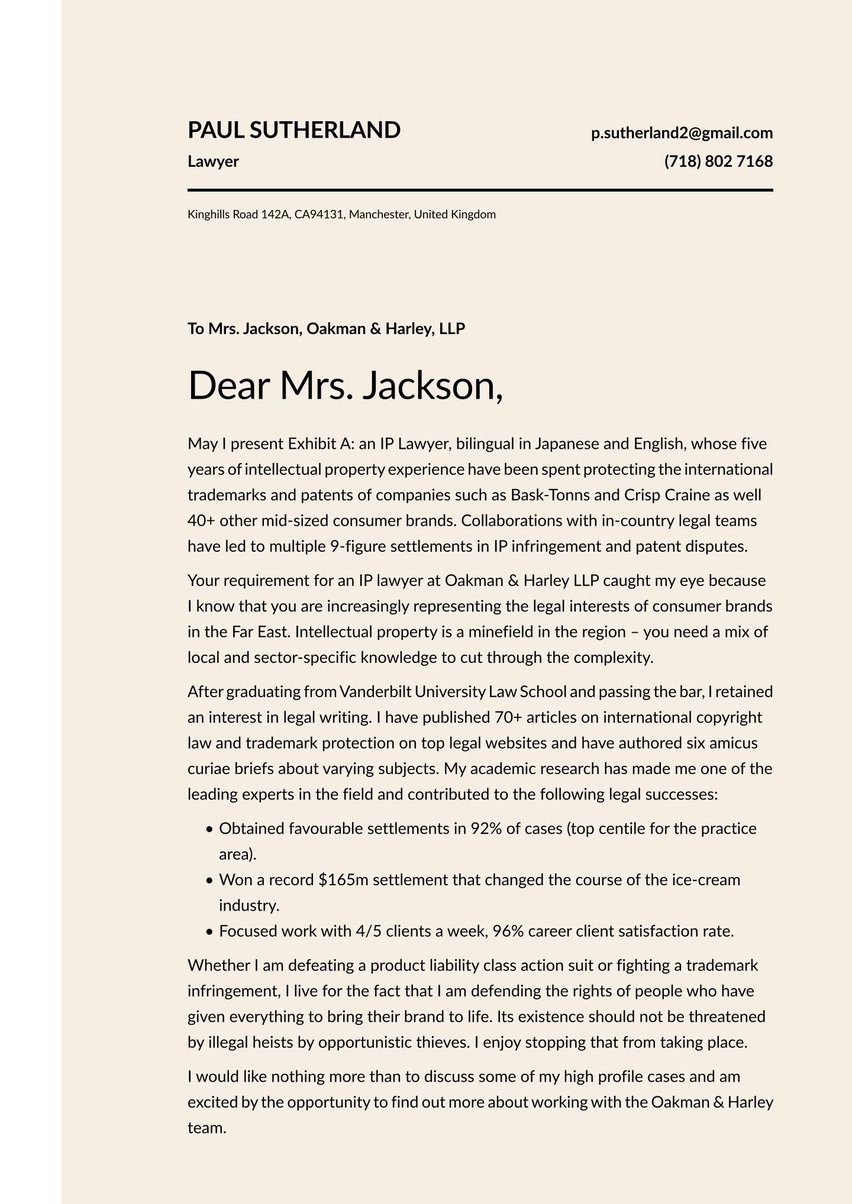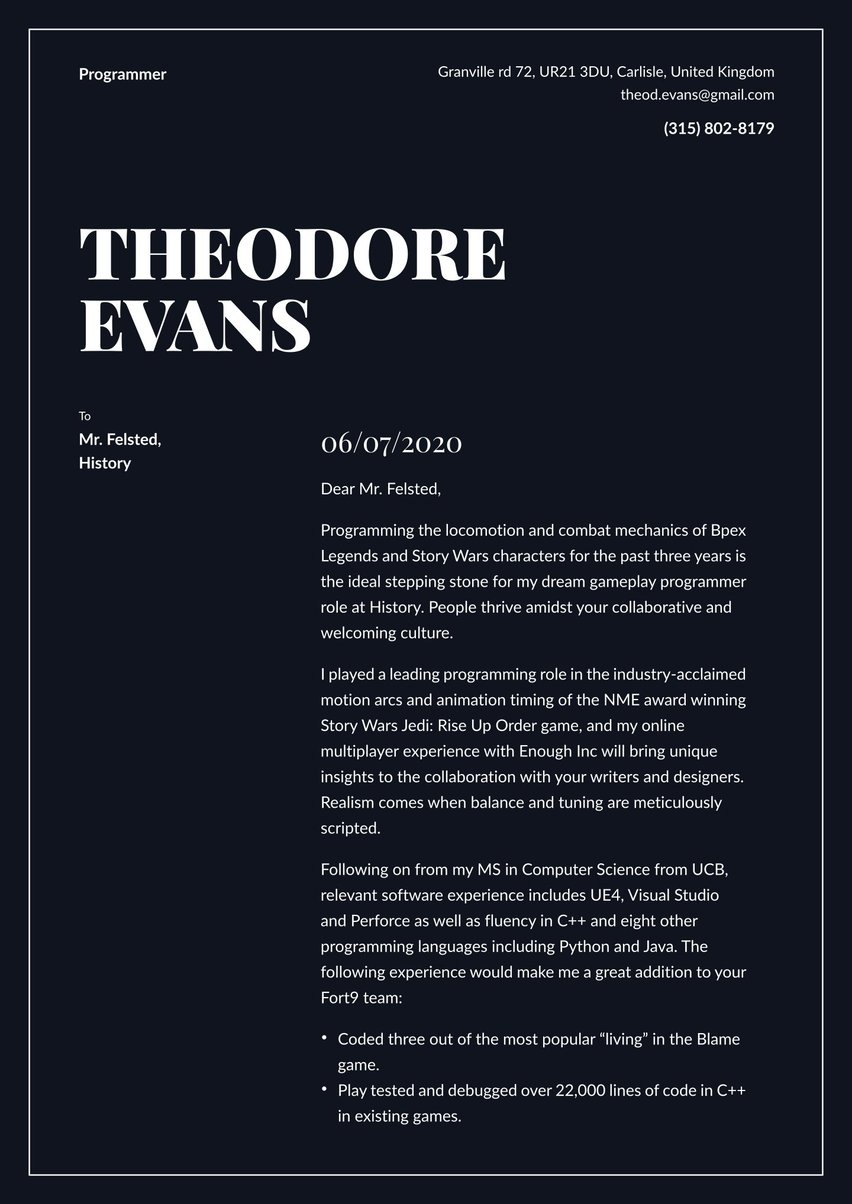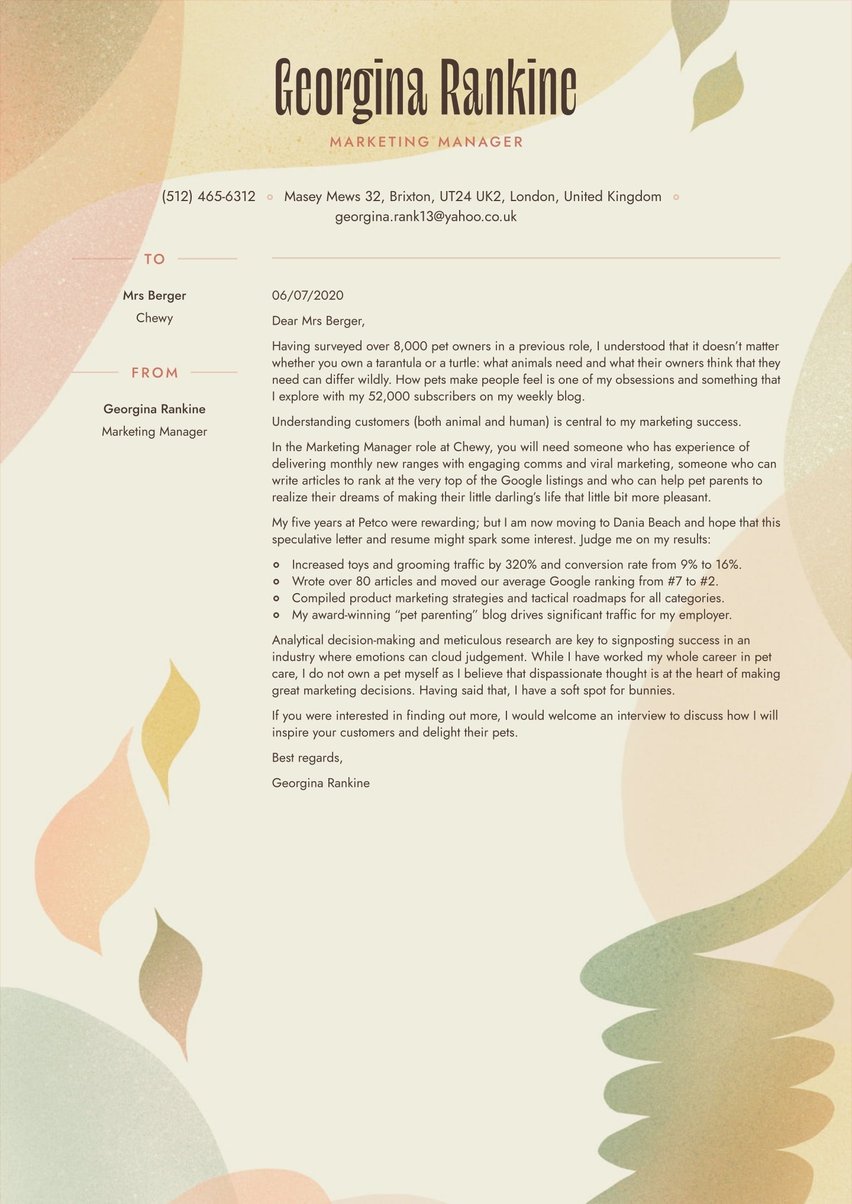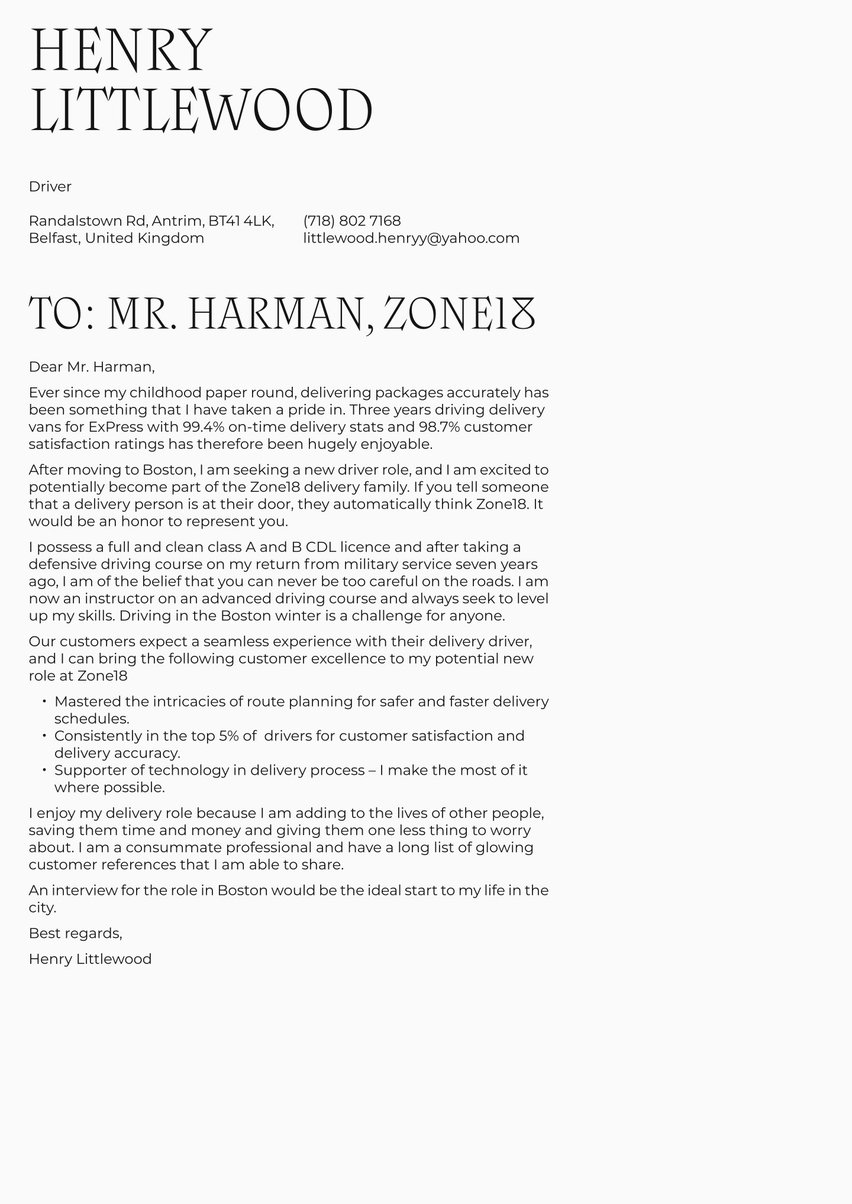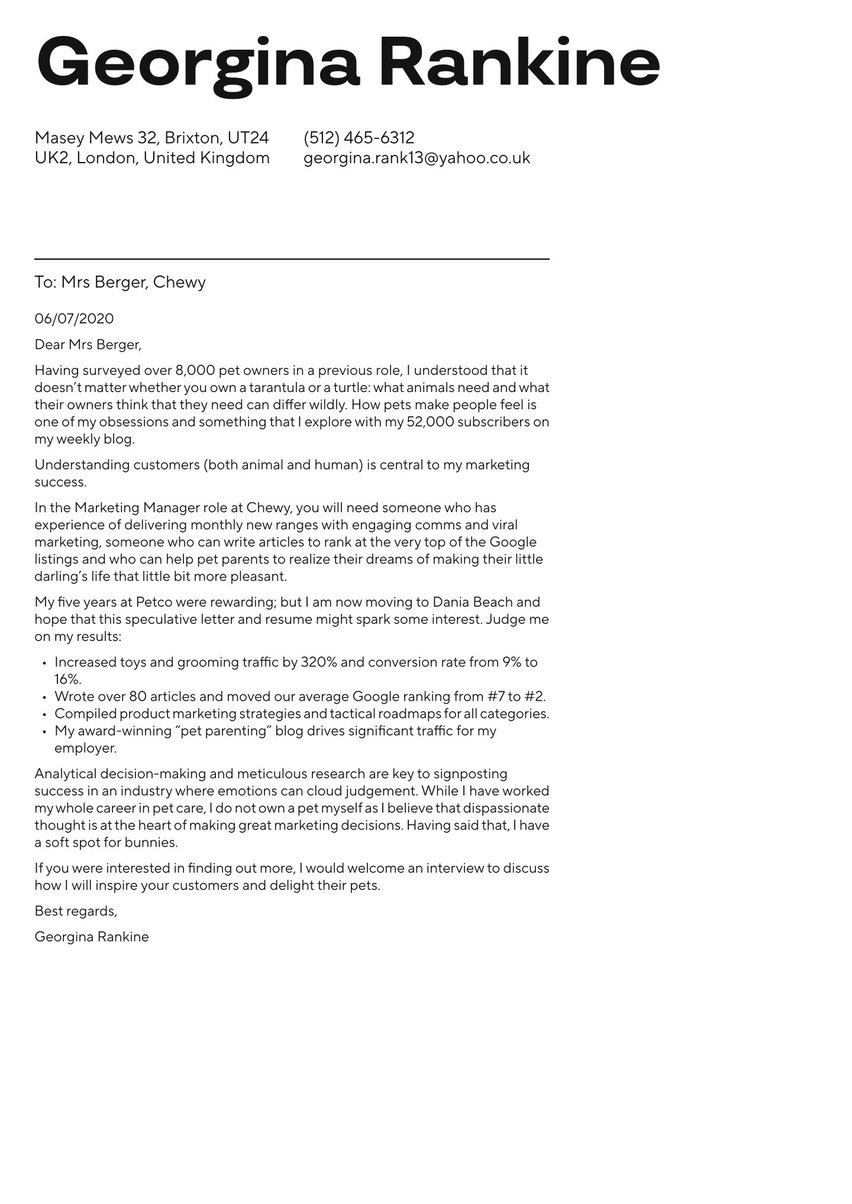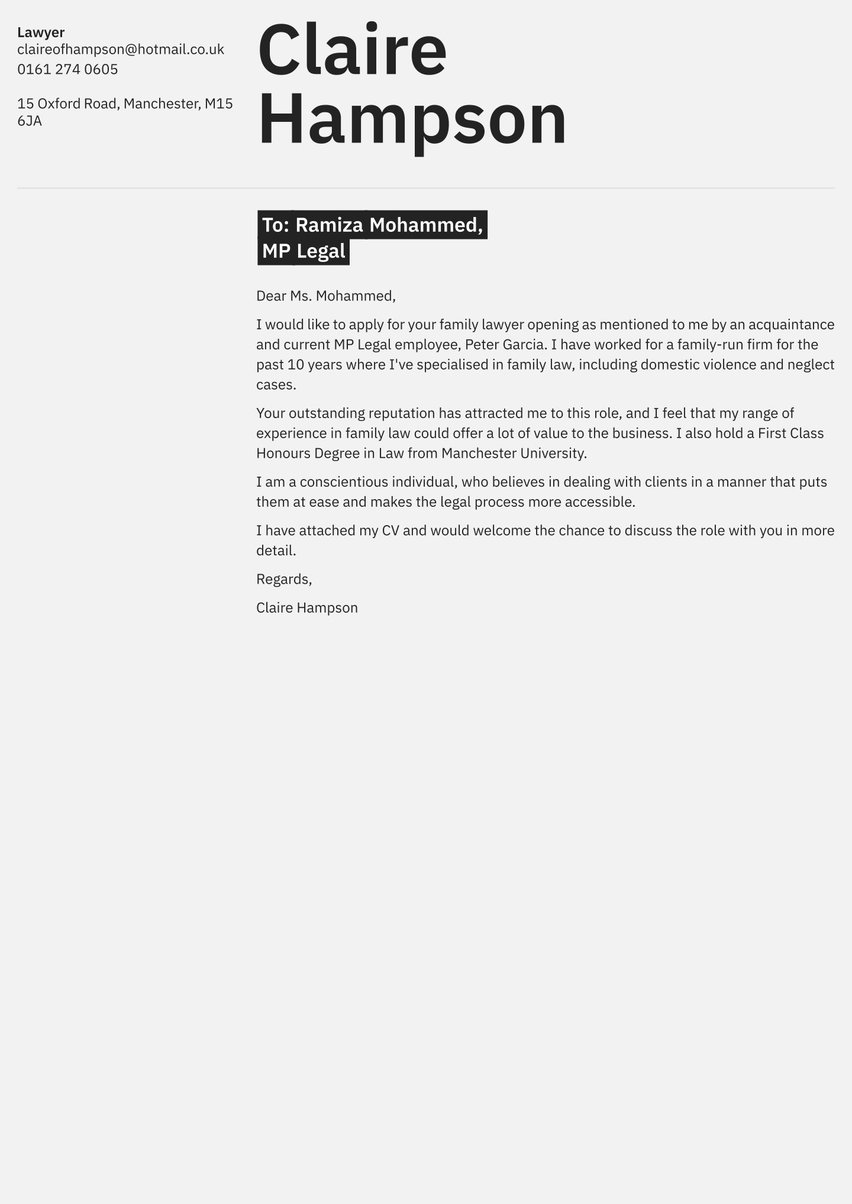As a psychologist, you understand that first impressions are critical. Similar to building rapport with a patient, you need to engage the hiring manager as soon as they open your application.
But with hundreds of applicants vying for each advertised position, securing a new job as a psychologist can be competitive. For this reason, you’ll need your cover letter to stand out.
Read our guide to elevate your chances of an interview with a psychology cover letter that catches the hiring manager’s eye and shares your unique career story.
Psychologist full text-only cover letter example
Dear Hiring Manager,
Re: Application for Clinical Psychologist Position
I am writing to apply for the Clinical Psychologist position within your organisation. As a chartered psychologist with over seven years of experience in both NHS and private practice settings, I offer a strong combination of clinical expertise, research background, and dedication to patient-centred care.
After completing my DClinPsy at the University of Edinburgh, I njoined NHS Lothian's Adult Mental Health Services, where I developed nexpertise in evidence-based interventions for complex mental health conditions. My experience includes conducting psychological assessments, delivering individual and group therapy, and providing consultation to multidisciplinary teams. In my current role at the Royal Edinburgh Hospital, I specialise in cognitive-behavioural and schema therapy approaches for treatment-resistant depression and anxiety disorders.
My professional strengths include:
- Comprehensive assessment and formulation skills across diverse presentations
- Experience delivering evidence-based interventions including CBT, ACT, and EMDR
- Strong clinical supervision capabilities for trainee psychologists and other mental health professionals
- Research experience, with publications in peer-reviewed journals on trauma-informed care
I am particularly drawn to your organisation's reputation for innovative psychological services and commitment to integrating research into clinical practice. I am registered with the Health and Care Professions Council (HCPC) and am a chartered member of the British Psychological Society (BPS) with enhanced DBS clearance.
I welcome the opportunity to discuss how my clinical experience and approach align with your organisation's needs and values. Thank you for considering my application.
Yours sincerely,
Dr. Sophia Chen DClinPsy, CPsychol, HCPC Reg.
Sections of a psychologist cover letter
Psychologists understand the importance of structured thinking and clear communication when developing a patient plan. The same approach applies to your psychology cover letter format.
A cover letter requires these key elements:
- Cover letter header. Project your professionalism with an attractive header, including your name, contact details, and main job title.
- Greeting. Address the hiring manager by name to make it more personalised. Check the job description or make a quick call to the organisation to find this information.
- Introduction. Spark the reader's attention with a captivating opening to your psychology cover letter that hints at why you’ll be a perfect addition to the team.
- Body. Delve deeper into your achievements as a psychologist. Employers want to see your impact—and, most importantly, whether you can bring the same insight and outcomes to their team.
- Conclusion. Wrap up your cover letter with a summary of your qualifications and reiterate your interest in the psychologist role. Don’t forget a polite call to action.
- Signature. End with a professional goodbye, including your name.
Each section of your cover letter plays a part in contributing toward the development of a compelling and professional summary of your experience as a psychologist.
Avoid the temptation of listing all of your experience and career highlights. You want to whet the appetite of the employer, rather than drown them in detail. Aim for a short and snappy one-page cover letter that compliments your CV and includes details of your accomplishments.
Looking for some inspiration? View our library of 100+ cover letter examples, including the following psychology-related cover letters:
For more general information and details covering each section, view our article on how to write a cover letter.
Once you’ve perfected your header and addressed the hiring manager, it’s time to move on and create a captivating introduction.
Introduction of a psychologist cover letter
When you start a cover letter for a psychologist position, you’ll need to quickly hook the recruiter’s attention so that they feel compelled to read on and learn more about you.
Think of this as similar to when you first meet a patient and need to quickly build trust, clarity, and connection.
Dear Hiring Manager,
Re: Application for Clinical Psychologist Position
I am writing to apply for the Clinical Psychologist position within your organisation. As a chartered psychologist with over seven years of experience in both NHS and private practice settings, I offer a strong combination of clinical expertise, research background, and dedication to patient-centred care.
Dear Sir or Madam,
I am writing to inform you of my interest in the advertised psychologist role. I consider myself to have the ideal blend of skills and experience to excel as part of the Green Tree Clinical Practice team.
Try to avoid a run-of-the-mill or generic introduction. Instead, clearly express your passion for helping others, highlight your relevant clinical experience, and show that you understand the specific client group or specialism the organisation focuses on. This demonstrates both professional alignment and genuine interest in their work.
Adopting this approach will send a message to the employer that you’re on the same page. If you can quickly present yourself as the answer to their problems, they will be more inclined to move you forward in the hiring process.
Psychologist cover letter body
In the body of your psychology cover letter, follow a clear template:
- Highlight your professional skills and experience in the field of psychology.
- Demonstrate how you’re the perfect fit for the organisation’s culture.
- Wrap up with a strong conclusion.
- End with a persuasive call to action to encourage the hiring manager to contact you.
First body paragraph
Create a powerful first body paragraph that highlights your top-level skills and experiences as a psychologist. It’s essential to show that you understand the demands of the role, so make sure that every sentence speaks to how you will provide added value.
Here’s how you can weave your qualifications into an engaging narrative:
- Highlight your education and credentials. Spotlight any degrees, certifications, and research in the field of psychology, as well as your commitment to ongoing professional development.
- Emphasise your clinical experience. Outline your knowledge of specific therapeutic approaches and notable clinical outcomes relevant to your target role.
- Communication and interpersonal skills. Highlight your strong communication skills and empathy in action, including success providing holistic, coordinated, and tailored care to clients, while liaising with multidisciplinary teams.
- Cultural awareness. Show how you have worked sensitively and effectively with individuals from a wide range of cultural backgrounds, recognising and respecting differing values, experiences, and identities.
- Motivational leadership. Detail any leadership or supervisory roles. Perhaps you led a complex case or trained newly appointed team members.
Second body paragraph
Connecting with an employer via your psychology cover letter is critical. Researching an organisation's mission, vision, and values, then communicating what aspects resonate with you is a great way to demonstrate that you fully understand the organisation and their needs.
For example, some key points that can be taken from the NHS mission and value statements include:
- Commitment to delivering patient-centred care.
- Focus on collaboration across multidisciplinary teams to benefit patients.
- Dedication to equality and inclusivity via the delivery of non-discriminatory services.
- Desire for employees who can contribute to service improvement and leadership roles.
To connect with the NHS recruiter in this example, emphasise your focus on service improvement by mentioning your previous success integrating cutting-edge research into clinical practice. Highlighting any registrations and professional memberships, such as the Health and Care Professions Council (HCPC) or British Psychological Society (BPS), will also boost your credibility.
After completing my DClinPsy at the University of Edinburgh, I njoined NHS Lothian's Adult Mental Health Services, where I developed nexpertise in evidence-based interventions for complex mental health conditions. My experience includes conducting psychological assessments, delivering individual and group therapy, and providing consultation to multidisciplinary teams. In my current role at the Royal Edinburgh Hospital, I specialise in cognitive-behavioural and schema therapy approaches for treatment-resistant depression and anxiety disorders.
My professional strengths include:
- Comprehensive assessment and formulation skills across diverse presentations
- Experience delivering evidence-based interventions including CBT, ACT, and EMDR
- Strong clinical supervision capabilities for trainee psychologists and other mental health professionals
- Research experience, with publications in peer-reviewed journals on trauma-informed care
I am particularly drawn to your organisation's reputation for innovative psychological services and commitment to integrating research into clinical practice. I am registered with the Health and Care Professions Council (HCPC) and am a chartered member of the British Psychological Society (BPS) with enhanced DBS clearance.
Call to action & conclusion
The closing paragraph of your psychology cover letter is just as important as your introduction. This is your opportunity to remind the recruiter why you’re the right psychologist to hire.
Highlight how your unique skills and experience can add value to the team and contribute toward the delivery of optimal patient care.
Make sure to thank the employer for reviewing your application. This shows that you respect their time and may improve your chances of getting an interview.
End with a proactive call to action. Mention your curiosity to find out more about the role to prompt the hiring manager to invite you for an interview.
I welcome the opportunity to discuss how my clinical experience and approach align with your organisation's needs and values. Thank you for considering my application.
Yours sincerely,
Dr. Sophia Chen DClinPsy, CPsychol, HCPC Reg.
Sign off with a professional closing, such as “Sincerely.” Remember to proofread your cover letter to ensure that it is error-free and perfectly polished.
Consider the ATS
The applicant tracking system (ATS) is an electronic method for filtering applications. As many job applications are managed digitally, so too are the methods that hiring managers use to sift through applicants.
The ATS algorithm sorts through candidates’ applications by scanning for specific keywords.
Review the psychologist job listing and pinpoint words that are frequently used or seem significant. Then, if they are relevant to you, ensure that you incorporate them naturally in your psychology cover letter.
For example:
- “Forensic psychology”
- “HCPC registration”
- “Clinical supervision”
Key takeaways
When writing your psychology cover letter, keep it focused, professional, and tailored to the role. Talk about the experience and key skills that really matter to the service, and show that you understand what they do and why it’s important. Let your passion for your work come through naturally in your tone.
A cover letter is the perfect place to tell your personal story or journey as a psychologist. Numbers, statistics, recognition, and awards all help build your credibility and make you stand out in the hiring manager’s mind.
Try our cover letter builder to commit your psychology career story to paper and boost your job interview prospects!

